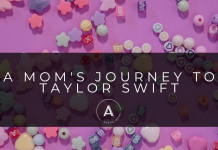
My hands trembled as I carefully copied the final sentence of my report onto a fresh sheet of lined notebook paper. In that bygone era when computers weren’t a household commodity, final drafts needed to be written by hand, and the task of rewriting my words in permanent ink invariably sent jolts of anxiety pulsing through my veins.
Sentence complete, I set down my pen to reread my work. Only then did I catch it: the entire paragraph that I had somehow omitted, inconveniently located on page one of my five-page paper. My first reaction was shock, followed by shame, and then a surging rage that led me to shred the entire final draft of my report into pieces. Angry tears streamed down my face as I pulled out a fresh piece of paper to begin again, knowing that I would be up all night long with my attempts to complete this assignment to my own exacting standards.
I was ten years old.
This wasn’t the first time perfectionism was my slavedriver, and it wouldn’t be my last. My anxiety over achieving perfect grades reached a fever pitch in Jr. High, when my mom had to pull me out of public school for a year of homeschooling because I simply couldn’t cope with the self-imposed academic stress.
Throughout high school and college, I viewed perfectionism as my greatest asset: it drove me to achieve impeccable grades, excel in numerous extracurricular activities, and even obtain a full academic scholarship to the college of my choice.
But like all earthly masters, perfectionism demanded a hefty price: it robbed me of my free time and my relationships, led me to the brink of suicide when I failed to meet its stringent demands, kept me from accepting jobs that I couldn’t execute perfectly, ensnared me in an eating disorder that lingers to this day, and squandered my peace and joy.
As the years went by, I would receive several different diagnoses—Obsessive Compulsive Disorder, Anorexia, Anxiety, Depression—but all fell under the savage umbrella of Perfectionism. And while medication and therapy helped, this internal fire to do and be better was never extinguished. No amount of positive affirmations or self care could drown out the inner critic who scrutinized my every word and action and consistently found me coming up short.
For years, I assumed this internal faultfinder was inside of everyone, and that mine was just louder than most. It wasn’t until I was in my late twenties that I discovered an ancient personality typing system that revealed the fallacy in this assumption.
It was a podcast that first introduced me to the Enneagram, a model of the human psyche that describes nine distinct but interconnected personality types.
From the moment the podcast guest described the traits of a Type One—“The Reformer”—I knew that was me. Principled; conscientious; responsible. . . judgmental; rigid; critical; afraid of making mistakes. . . obsessive about imperfection . . . I couldn’t have described myself better if I’d tried!
According to the podcast’s Enneagram expert, a “strong inner critic” was the defining characteristic of a Type One. She went on to explain that all Ones have this harsh inner voice, and that this is unique to our type; the entire population does NOT feel like their every waking moment is under scrutiny, as I had always believed. It was a lightbulb moment for me, realizing that some people—most people—could make mistakes and be entirely okay with that.
After hearing my personality described so succinctly on that initial podcast episode, I dove headfirst into exploring this unique personality system. I poured through dozens of books, listened to numerous podcasts, and read every article I could get my hands on to learn as much as I could. I even began writing about the Enneagram on my personal blog. (You can read my Beginner’s Guide here.) My study helped me better understand those around me (even though “typing” others is technically taboo in the Enneagram world), but more importantly, the Enneagram helped me to understand—and come to terms with—ME.
I began to see more clearly how my perfectionism was a coping mechanism that was hurting myself and others, but also how it could be used for good.
When held in its proper place, my drive toward perfection could serve as a source of integrity and discernment, prompting me to see potential in every person and situation, and guiding me in making positive changes for myself and others.
I learned that at my least healthy, I adopted the negative qualities of a Type Four (temperamental, narcissistic, self-destructive, depressed), while at my healthiest, I could begin to resemble a thriving Type Seven (optimistic, enthusiastic, fun-loving, joyful). The best Enneagram teachers pointed me to practices that would help me harness the attributes of my type while letting go of unhelpful attitudes and habits.
The more I learned, the more this model moved beyond a point of fascination to become a great source of healing.
It didn’t excuse my behavior, but it did explain it. And it helped me to work with my strengths instead of against my weaknesses.
The Enneagram isn’t a magic pill. It’s an imperfect system that can only go so far in describing individuals and helping us reach our potential. But for me, it has been an invaluable tool in learning how to embrace my God-given personality and tendencies, and moving towards the best possible version of me.
Are you familiar with the Enneagram?
How have you found it helpful as you gain a deeper understanding of your type?
Photography: Jessica Rockowitz Photography + Film
Model: www.thefussymama.com









